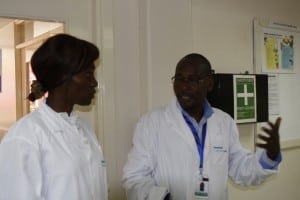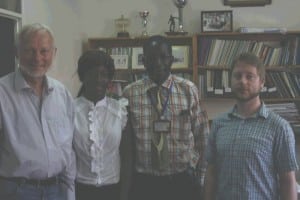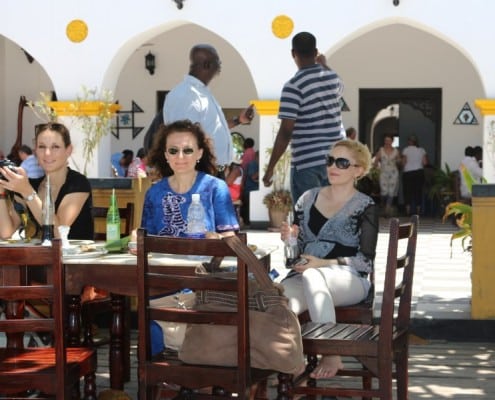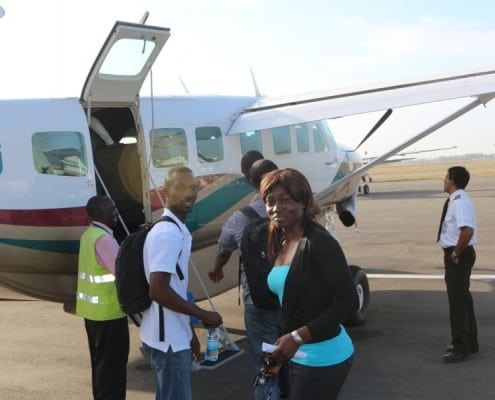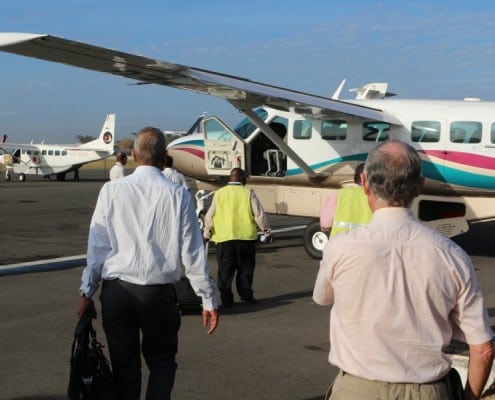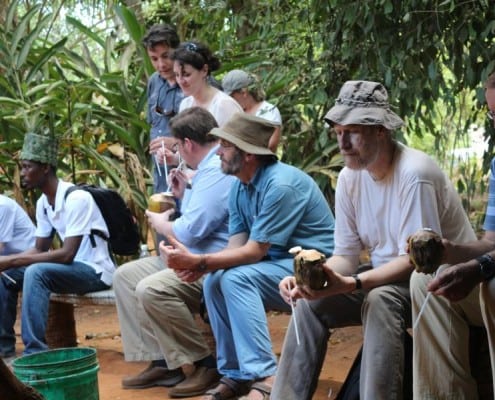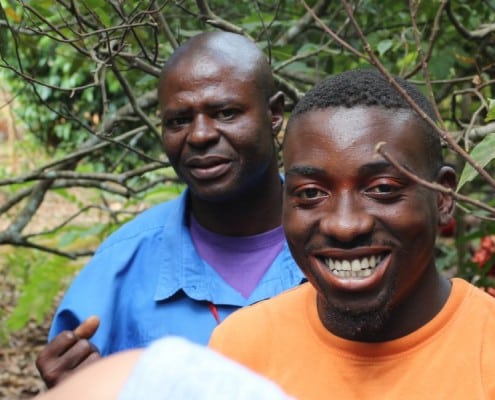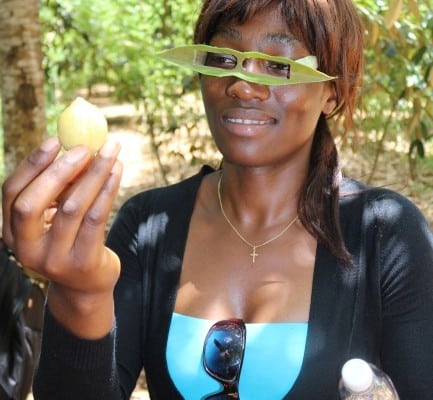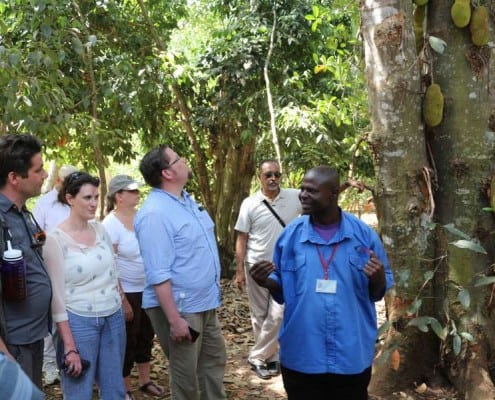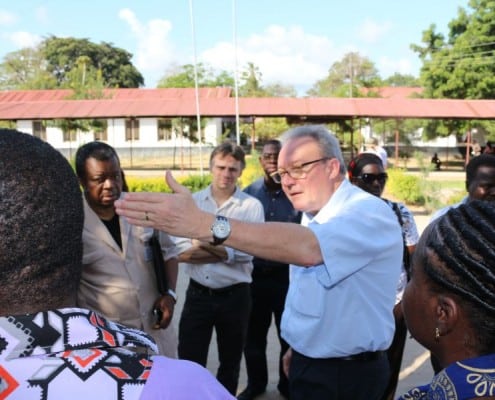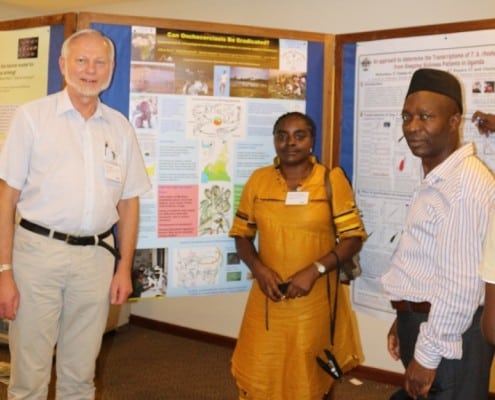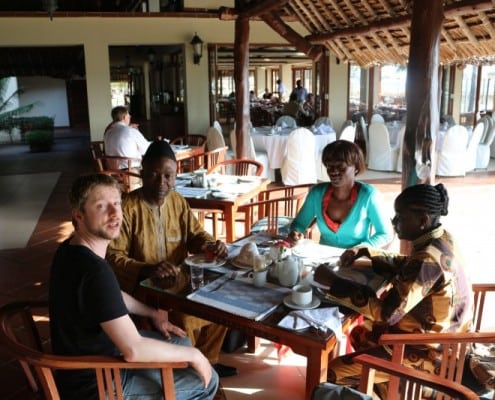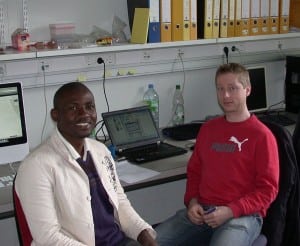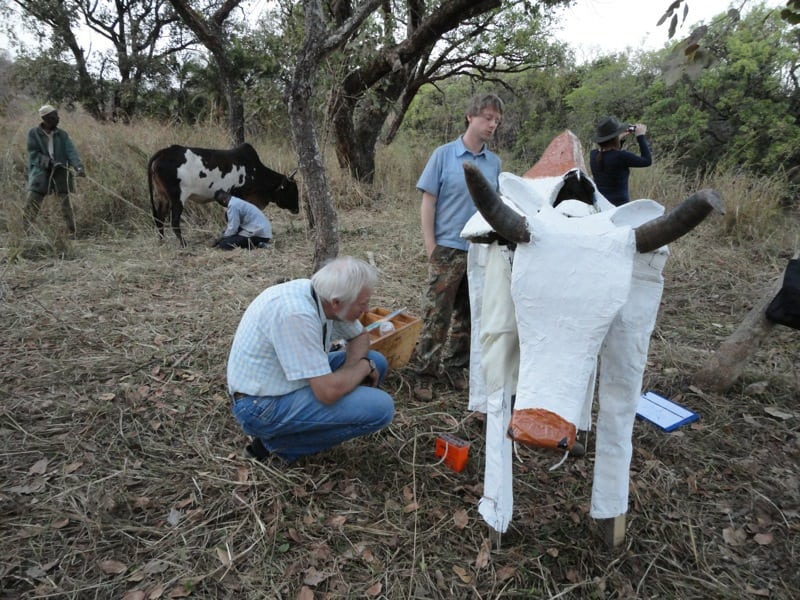Loulou Peisl starts her practice at the Programme Onchocercose laboratory in Ngaoundéré
/in Uncategorized/by Alfons RenzCand. biol. Loulou Peisl started her practice at the Programme Onchocercose laboratory in Ngaoundéré. She shall focus on the biology of Simulium damnosum s.l. larval populations at the local breeding site in the river Vina du Sud: What do these larvae feed, do they habour any parasites, which micht limit their survival and which parameters delimit the size of the larval population. i.e. the number of S. damnosum s.l. larvae that populate a specific breeding site.
DFG Partners meet in Dar es Salaam
/in Uncategorized/by Alfons RenzReserachers from over 30 research projects present their ongoing studies on the epidemiology and control of neglected infectious diseases in Africa. Part of the German-Africam research-cooperation is our project on human and bovine onchocerciasis.
The meeting takes place at the White Sands beach hotel 20 km north of Dar es Salaam.
Two new Microscopes received from Switzerland
/in Uncategorized/by Alfons RenzWe are happy to announce the arrival of two Wild M5a Dissecting Microscopes for our fieldwork in Cameroon. One of the microscopes will be used in The University of Bamenda. We would like to thank Mr. Arnauld Buecherlen for his contribution to our project. We also received a translucent light table from a private Swiss company called Mikroskop Technik Dietheim GmbH. We would like to thank both for their support of our work.
Walter Dietheim
Gsterigstrasse 9
CH-8646 Wagen
Bayer Science & Education grant received !
/in Uncategorized/by A. RenzArchile Eric Paguem from the University of Ngaoundéré received a scholarship of 5.000 Euro for his project on QTL-analysis of cattle diseases. The aim is to link genetic traits to susceptability or resistance of local cattle to the prevailing pathogens. There area a lartge variety of cattle breeds of taurine and Zebu origin. It is also well known, that these breeds differ with respect to theit suceptability to trypanosomes and othe diseases. In our experiments, we noticed typically different patterns of resistance to Onchocerca ochengi even within herds of cattle of the same breed, kept in tghe same herd and exposed exposed to the same rate of transmission. The aim of the study is to find linkages to genetic traits.
Archile is collaborating with Babette Guimbang (University of Ngaoundéré) and Dipl. biol. Albert Eisenbarth and Alicja Sarneca (Univ. of Tübingen) in Ngaoundéré and Dr. Wolfgang Hoffmann (Univ. Tübingen). His work is supervised by Dr. D. Achukwi (IRAD Cameroon) and Dr. A. Renz (Univ. Tübingen). Samples of cattle-DNA from Cameroon are examined using DNA-chips at the University in Hohenheim (Prof. Jörn Bennewitz and Dr Siegfried Preuss, Institute of Animal Husbandry and Breeding)
Congratulations to this great success – his project was amonst the 40 selected from over 600 applications, and we whish him good luck and interesting results. Thanks also to Babette (she works on the same project on a Boehringer grant) and to Albert, who both contributed to prepare this reserach project!
COBE-Project started: Inauguration 28th of April at MPI-Tübingen
/in Uncategorized/by A. RenzThe new CFG-project was present in the lecture hall of the Max-Plack-Institute in Tübingen. Amongst the guests were the former German Ambassador of Yaounde, Reinhard Buchholz, the vice-director of IRAD, Yaounde, Prof. Daniel Achukwi, and many students, collegues and friends who have been collaborating with Programme Onchocercoses since longtime.
For more information, download the presentation: COBE-Eröffnung-2013
Simulium Traps
/0 Comments/in News, Uncategorized/by website administratorSimulium damnosum s.l. blackflies attack man, cattle and game animals. In order to study the hostfinding behaviour and to develop traps for blood-hungy flies, we constructed a number of automatic traps. => Read more
David's Report from Nigeria
/0 Comments/in News, Uncategorized/by website administratorDavid Ekale has been trained as a laboratory assistant in our various research projects since 1984. He is now a part-time student in Nsukka, Nigeria and reports of his experiences there.
During wor work with the Programme Onchocercoses in Cameroon (1984 to 1987 in Kumba, then in Ngaoundere) I learned many entomological and parasitological techniques, like dissections of Simulim damnosum flies, morphometric description of adult flies, identification of third stage larvae and microfilaria species. cryopreservation of microfilaria species, intra-thoracic injection of microfilaria in vector flies, cytotaxonomy of the Simulium damnosum complex, embryogram analysis etc. To enlarge my scientific background and to learn more about biology and research methods, I inscribed as a part-time student at the Nsukka-University in Nigeria. Here are my impressions as a student of an African university:
My experience in Nigeria
My study destination Nigeria is a huge country with over 150 million inhabitants. Amazing indeed, because despite the huge oil deposits making it one of the richest country in Africa it is still rated a poor country with less than a dollar per person per day; problems arising mainly from leadership style, poor management and especially corruption has a negative impact in the country’s economy. It is like a magnified version of what is happening in most African countries.

